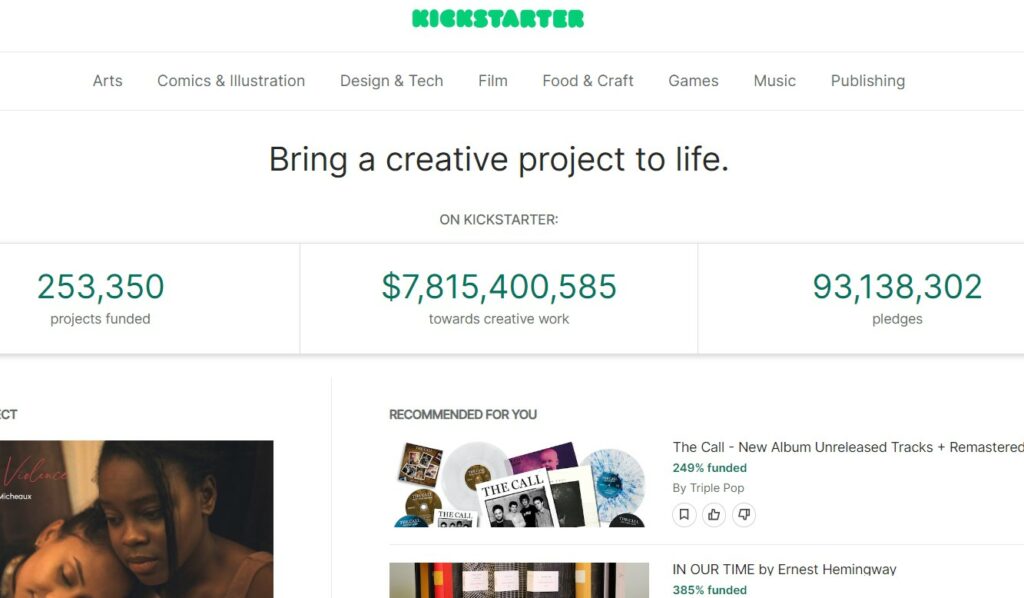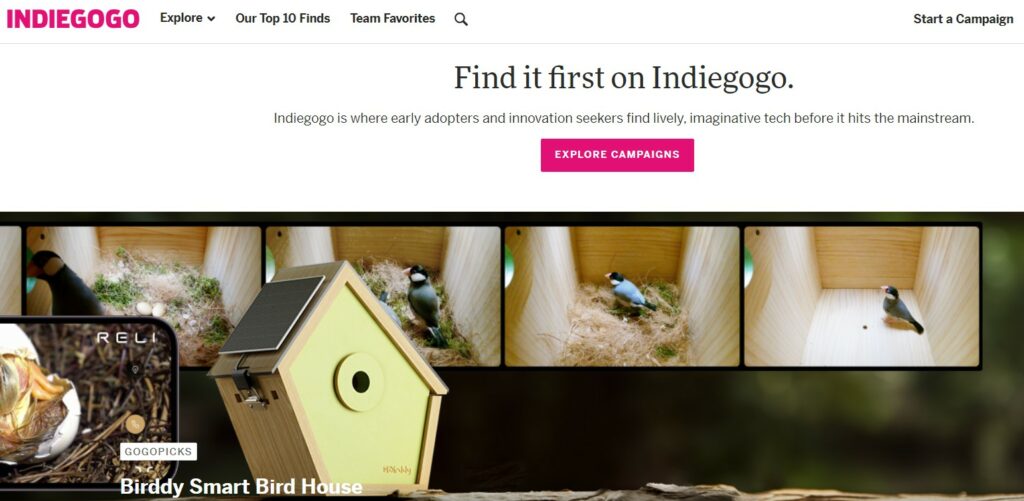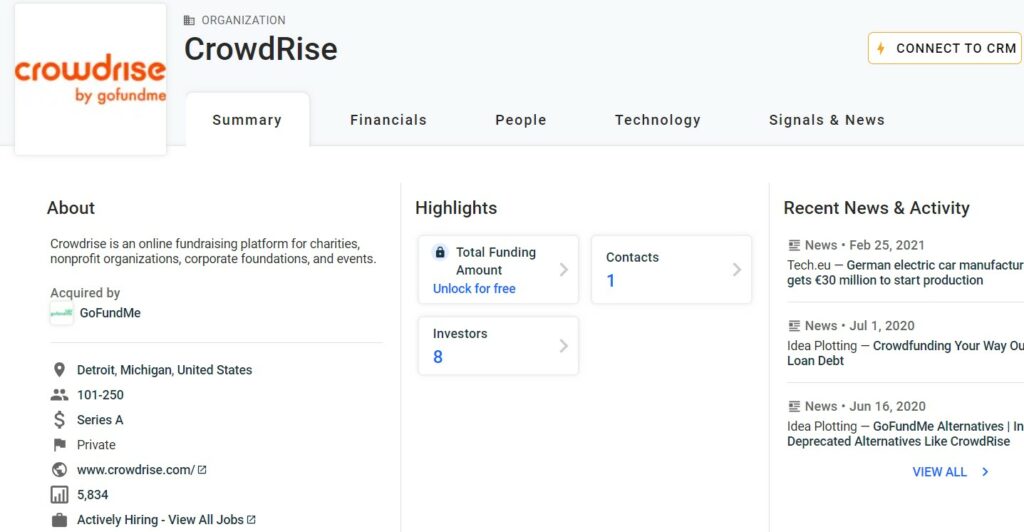Crowdfunding platforms have revolutionized the way you can raise money for just about any cause, project, or need and finding GoFundMe alternatives is a good start to do this.
GoFundMe is perhaps one of the most recognizable names in this domain, offering a simple and relatable way for individuals to solicit financial support from the public.
However, it’s not the only player in the field, and depending on your specific needs, there may be better suited alternatives.
Each crowdfunding site comes with its unique set of features, fees, and community engagement strategies.
While GoFundMe has set a precedent in the crowdfunding scene, various other platforms like Kickstarter, Indiegogo, and Givebutter offer diverse tools and benefits that might align more closely with your fundraising objectives.
Whether it’s a personal cause, a non-profit initiative, a creative project, or an entrepreneurial venture, exploring different platforms can yield better outcomes for your campaign.
Choosing the right platform can be critical to the success of your fundraising efforts.
As you navigate through your options, consider factors such as the ease of setting up your campaign, the fee structure, the type of support you’ll receive, and the reach of each platform.
Remember, a platform that caters specifically to your type of campaign and audience can greatly enhance your chances of hitting your fundraising goals.
Popular GoFundMe Alternatives
When searching for crowdfunding platforms, you have several choices that cater to different types of campaigns and fundraising goals.
1. Kickstarter

Kickstarter is best known for supporting creative projects.
The platform operates on an all-or-nothing funding model where your project must hit its goal to receive the money pledged by backers.
This can be motivating for both you and your supporters, but it’s crucial to set realistic goals.
2. Indiegogo

Indiegogo offers a more flexible approach to crowdfunding.
It’s ideal if you’re an entrepreneur looking to bring a new idea to market, offering both fixed and flexible funding options.
With Indiegogo, you can choose to receive funding even if you don’t meet your goal, subject to different fees.
3. Patreon

Patreon stands apart by focusing on memberships and subscriptions.
If you regularly create content and want to earn a monthly income, Patreon allows your fans to support you on a recurring basis.
This can provide a steady income stream as you continue to provide value to your patrons.
Understanding Crowdfunding Platforms
When you’re looking into crowdfunding, you’re exploring a way to raise money from a large number of people, typically through the internet.
Crowdfunding platforms are sites that allow you to create campaigns, share your story, and collect funds for your cause, project, or personal need.
- Types of Crowdfunding: There are generally four types: donation-based, rewards-based, debt-based, and equity-based.
- You choose based on your fundraising goals.
- Platform Fees: Each platform may charge a fee for its services, often a percentage of the funds you raise.
- Payment Processing: Platforms handle transactions for you, but it’s important to check their payment processing fees.
- Campaign Duration: Some platforms have set campaign durations, while others let you fundraise indefinitely.
Crowdfunding platforms offer various tools and features:
- Customizable Pages: Tailor your fundraising page to echo your campaign’s message.
- Social Sharing: Easily share your campaign on social media to reach more people.
- Support and Resources: Many platforms provide guides and customer support to help you maximize your campaign’s potential.
Choosing the right platform aligns with:
- Your fundraising objectives.
- Your desired audience.
- The specific features that will aid in achieving your campaign goals.
Remember to carefully review each platform’s policies and support options, as these can significantly influence the success of your campaign.
Niche Crowdfunding Alternatives
If you’re seeking more specialized crowdfunding platforms that cater to specific types of causes or projects, niche alternatives to GoFundMe may be more suited to your needs.
Let’s explore some platforms designed for particular fundraising arenas.
4. DonorsChoose

For educators and classrooms: If you’re a teacher looking to fund new classroom projects or resources, DonorsChoose is the platform tailored for you.
It’s a unique space where public school teachers can post classroom project requests, and donors can choose the projects they want to support.
Think of it as a bridge connecting your educational project with philanthropists who are eager to foster learning.
5. Crowdrise

For charity and personal causes: Crowdrise might be your go-to platform if you’re aiming to raise funds for charitable events or causes.
Now part of GoFundMe, Crowdrise focuses on charity and event-based fundraising, making it easy for nonprofits or individuals to create campaigns for marathons, birthdays, or memorials that benefit non-profit organizations.
Deciding Between Platforms
When choosing a crowdfunding platform as an alternative to GoFundMe, it’s essential to consider the associated fees, how the platform helps you engage with your community, and whether it caters to your specific project type.
Fees Comparison
Different platforms have a range of fee structures that can significantly affect the net amount you receive from donations. Here’s a quick comparison:
- Snowball: Offers text-to-give donations, optimized donation tools, and generally favorable fee options.
- Givebutter: Known for its interactive fundraising features, it may offer competitive fees.
- Donorbox: This platform prides itself on being easy to use with a low-cost structure.
Community Engagement
The ability to engage your donors and supporters can influence the success of your campaign:
- Kickstarter: Provides a robust platform for creative projects with a strong community of backers interested in supporting innovation.
- Patreon: Ideal for creators seeking ongoing support, Patreon allows for membership tiers and continuous engagement.
Project Types
The type of project you are fundraising for can determine which platform is the best fit:
- For creative endeavors like films or gadgets, Kickstarter or Indiegogo may be appropriate due to their focus on creative and entrepreneurial projects.
- Bonfire stands out for campaigns that involve selling custom merchandise as a means of fundraising.
- Classy: Suited for larger organizations with bigger budgets that require a more comprehensive solution.
Key Takeaways
When exploring crowdfunding platforms as alternatives to GoFundMe, consider these points:
- Variety of Choices: You have several platforms at your disposal, each with unique features tailored to different fundraising needs.
- Specialized Focus: Platforms like Kickstarter and Indiegogo are suited for creative and entrepreneurial projects, while Fundly and Bonfire offer strong social media outreach and t-shirt fundraising respectively.
Features and Costs:
- Accessibility: Platforms like Donorbox and Givebutter are known for their ease of use and accessibility, with Donorbox boasting quick setup times.
- Flexibility: Look for platforms that offer flexibility in fundraising, such as Patreon, which is optimal for memberships and recurring support.
- Budget-Friendly: Classy may be suitable if you’re working with a larger budget, while other platforms offer free or low-cost entry points for fundraising.
Platform Specifics:
- Campaign Structure: Recognize that some platforms, such as Kickstarter, operate on an all-or-nothing funding model, where you must reach your goal to receive any funds.
- Community Support: Consider platforms like GiveCampus for educational fundraising or Kiva for microlending to support small businesses worldwide.
By comparing these elements, you’ll be better equipped to choose the platform that aligns with your fundraising goals and audience.
Remember, the right platform can significantly enhance your campaign’s success by providing the appropriate tools and support for your specific cause.

